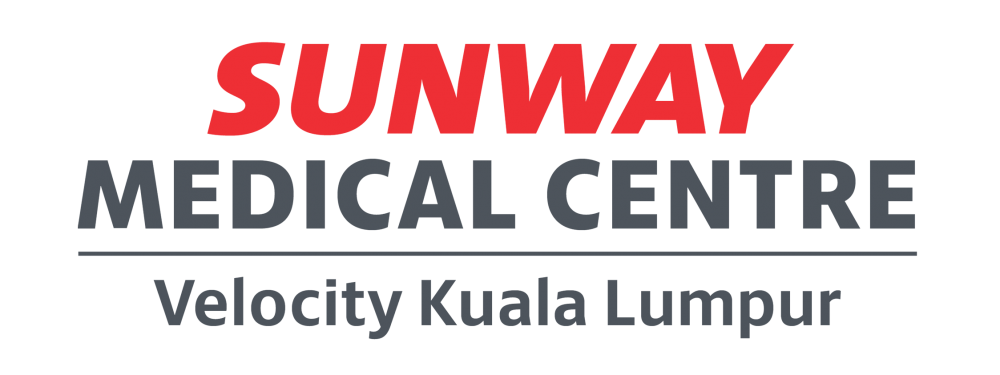Neuro-Urology Services

At Sunway Medical Centre Velocity (SMCV), our Neuro-Urology services focus on the diagnosis and management of urinary and pelvic floor disorders caused by neurological conditions. Neuro-Urology bridges the fields of neurology and urology, treating bladder, sphincter, and pelvic floor dysfunctions resulting from conditions that affect the brain, spinal cord, or peripheral nerves.
Our specialists combine clinical expertise with advanced diagnostic tools to ensure accurate assessment and personalised treatment for each patient.
Understanding Neuro-Urology
Neurological disorders can disrupt the communication between the nervous system and urinary tract, leading to challenges such as incontinence, urinary retention, urgency, frequency, or recurrent infections.
At Sunway Medical Centre Velocity, we treat patients with a wide range of neurological conditions, including stroke, spinal cord injury, multiple sclerosis, Parkinson's disease, diabetic neuropathy, and congenital disorders such as spina bifida, who may develop bladder or pelvic floor complications.
Early diagnosis and proper management are important to prevent long-term complications such as kidney damage, recurrent infections, or reduced quality of life.
Neuro-Urology Services at Sunway Medical Centre Velocity
At Sunway Medical Centre Velocity, we offer a broad range of neuro-urology services, including:
Advanced Diagnostic and Therapeutic Procedures
At Sunway Medical Centre Velocity, our neuro-urology specialists utilise a variety of advanced tools and techniques to diagnose and treat urological conditions effectively. These procedures are ideal for individuals experiencing:
- Persistent urinary incontinence or difficulty controlling bladder function.
- Urinary retention or incomplete bladder emptying.
- Recurrent urinary tract infections related to bladder dysfunction.
- Urgency, frequency, or nocturia (nighttime urination).
- Known neurological conditions affecting bladder or pelvic floor function.
On-Site Diagnostic Tests and Procedures
Our state-of-the-art facilities allow us to offer a wide range of diagnostic and therapeutic procedures, ensuring accurate diagnosis and personalised care for every patient:
A non-invasive test that measures urine flow rate to detect obstruction or weak bladder muscles.
This test helps to:
- Assess bladder emptying efficiency.
- Detect urinary obstruction or weak detrusor muscle.
- Monitor treatment effectiveness over time.
- Identify patterns of abnormal voiding.
Comprehensive evaluation of bladder capacity, pressure, and nerve-muscle coordination during filling and emptying.
This test helps to:
- Evaluate bladder storage and voiding function.
- Diagnose neurogenic bladder and detrusor sphincter dyssynergia.
- Assess bladder pressure and compliance.
- Guide treatment decisions for complex urological conditions.
An ultrasound examination that measures the amount of urine remaining in the bladder after voiding.
This test helps to:
- Assess bladder emptying efficiency.
- Detect urinary retention.
- Monitor patients with neurological conditions.
- Determine the need for catheterisation.
Evaluation of pelvic floor muscle function and coordination using clinical examination and specialized techniques.
This assessment helps to:
- Identify pelvic floor weakness or dysfunction.
- Guide rehabilitation programmes.
- Monitor progress during treatment.
- Assess muscle coordination and strength.
A diagnostic procedure that evaluates the electrical activity of pelvic floor muscles and sphincters.
This procedure helps to:
- Assess nerve-muscle coordination in the pelvic floor.
- Diagnose detrusor sphincter dyssynergia.
- Guide neuromodulation therapies.
- Monitor neurological recovery.
Structured programmes and education to improve bladder control and teach self-catheterisation techniques.
This support helps to:
- Establish regular voiding patterns.
- Reduce urgency and frequency symptoms.
- Promote bladder health and prevent infections.
- Enable safe and effective self-catheterisation.
- Renal Ultrasound: Non-invasive imaging to assess kidney structure and detect complications such as hydronephrosis.
- Bladder Ultrasound: Evaluation of bladder wall thickness, capacity, and residual urine volume.
These tests help to:
- Monitor kidney health in patients with neurogenic bladder.
- Detect structural abnormalities or complications.
- Guide long-term management strategies.
- Prevent kidney damage from chronic bladder dysfunction.
Post-Treatment Care and Rehabilitation
Long-term management is a crucial part of maintaining bladder and kidney health. At Sunway Medical Centre Velocity, we prioritise post-treatment care and rehabilitation to ensure our patients achieve optimal outcomes.
- Pelvic Floor Rehabilitation: Structured programmes including supervised exercises, biofeedback, and electrical stimulation to strengthen pelvic floor muscles and improve bladder control.
- Bladder and Bowel Management: Our team provides personalised management plans including dietary guidance, fluid management, and bowel care to support overall pelvic health.
- Continuous Monitoring: Regular follow-ups with urodynamic assessments and kidney function monitoring ensure patients maintain optimal urological health and prevent complications.
At Sunway Medical Centre Velocity, our Neuro-Urology Department is equipped with advanced technology and led by an experienced team of specialists dedicated to delivering precise diagnoses and personalised care. From preventive assessments to advanced treatments, we prioritise patient well-being at every stage of the journey.
For comprehensive urological care, explore our related services and consider regular bladder and kidney function assessments for early detection of potential complications.





